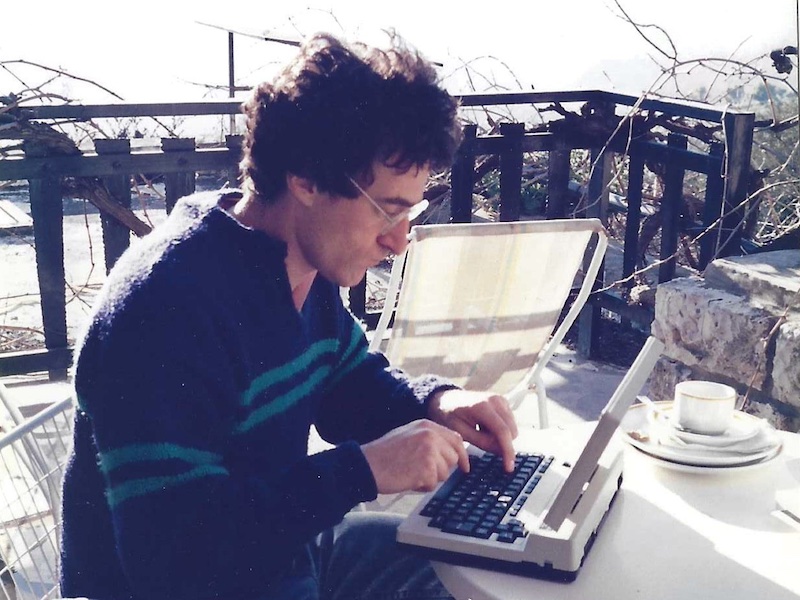 Ian Black filing for The Guardian in Northern Israel, 1991
Ian Black filing for The Guardian in Northern Israel, 1991
Ian Black (1953-2023) was a veteran Middle East journalist who held a PhD in Government from LSE. After many years as a journalist, he returned to LSE as a Visiting Senior Fellow at the Middle East Centre and made a significant contribution to the work of the Centre.
The LSE Middle East Centre is pleased to announce a new lecture series which will centre the ethos and rigour that Ian carried with him as a journalist and academic, specifically in relation to Israel and Palestine, but also more broadly in the Middle East.
Ian was dedicated to understanding the opinions of all communities and working closely with local journalists. He was an authority on Israel and Palestine specifically in the British media landscape, and held the rare quality of being able to transcend political divides while keeping true to facts on the ground.
For 36 years Ian was based at The Guardian as Middle East Editor, Diplomatic Editor and European Editor. He reported and commented extensively on the Arab Uprisings and their aftermath in Syria, Libya and Egypt. Ian wrote the introduction to The Arab Spring: Revolution, Rebellion and a New World Order (Guardian Books, 2012); Israel's Secret Wars (Grove Press, 1991), Zionism and the Arabs, 1936–1939 (Taylor & Francis, 1986, 2015); and contributed to the Encyclopedia of the Modern Middle East and North Africa (Macmillan Library Reference, 2004). His most recent book was Enemies and Neighbours: Arabs and Jews in Palestine and Israel, 1917-2017 (Allen Lane, 2017).
This first lecture of the series will be delivered by Jim Muir, former BBC Middle East correspondent and colleague to Ian, who has been reporting from the region for nearly 50 years. Armed with a degree in Arabic from Cambridge, Jim arrived in Beirut in early 1975 and is still based there now, after stints as BBC correspondent in Cairo, Tehran and Baghdad.
Monday 3 November 2025 | 18:30 - 20:00 GMT | Raya Jalabi, Financial Times
Monday 4 November 2024 | 18:30 - 20:00 GMT | Jim Muir, former BBC Middle East Correspondent